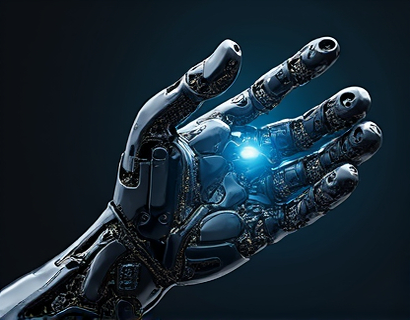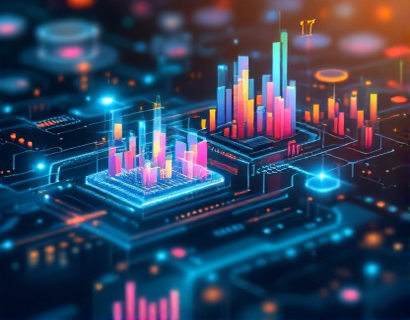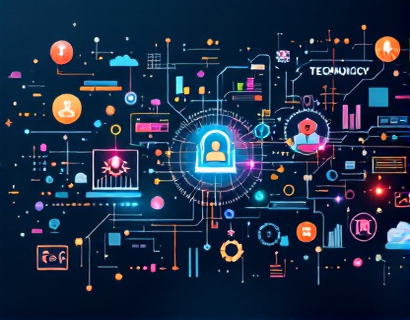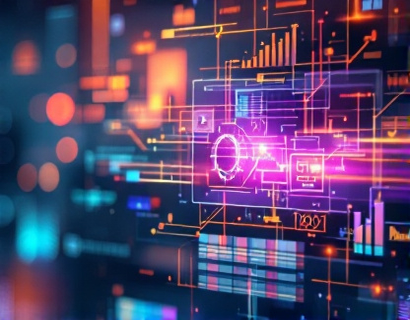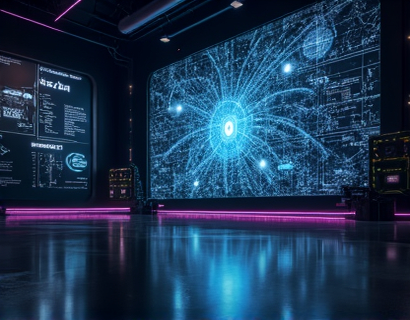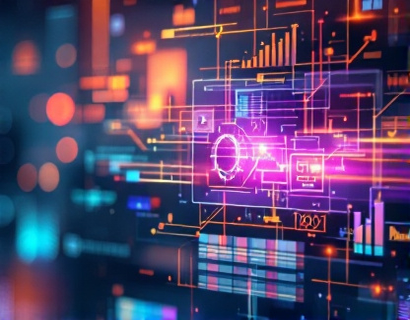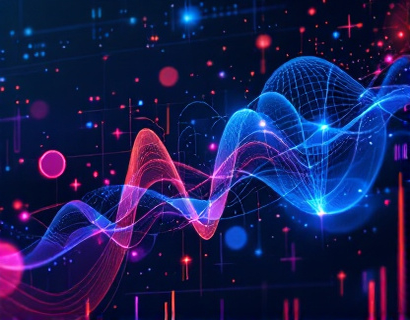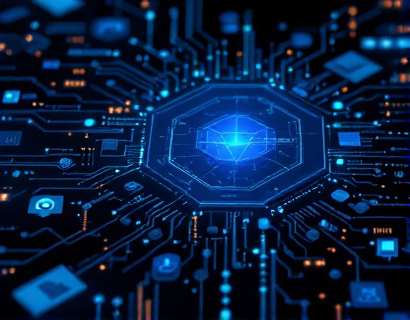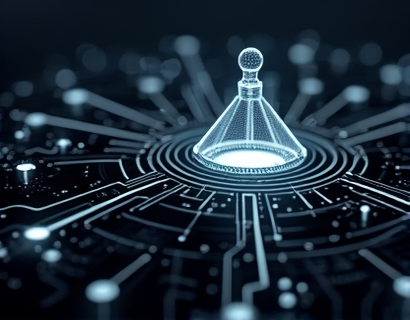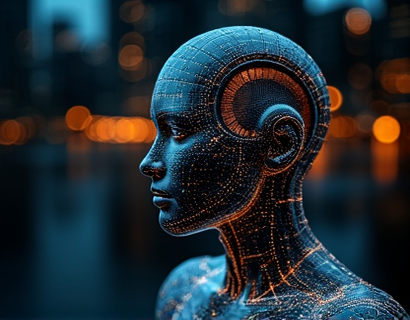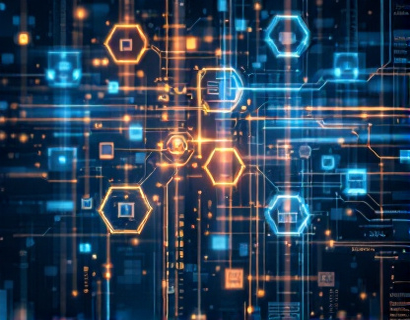Crypto and AI: Pioneering Enhanced Digital Experiences for the Future
The intersection of cryptocurrency and artificial intelligence (AI) is giving rise to a new era of digital innovation, where traditional boundaries are being redefined and user experiences are being transformed. This fusion of technologies is not just a trend but a fundamental shift in how we interact with digital services and applications. As we delve into the latest advancements in this space, it becomes clear that the potential for enhanced digital experiences is vast and multifaceted.
The integration of AI into cryptocurrency applications is revolutionizing the way users engage with digital assets. AI-driven algorithms can analyze vast amounts of data to predict market trends, optimize trading strategies, and enhance security measures. For instance, machine learning models can identify patterns in historical price data to forecast future movements, providing users with valuable insights for informed decision-making. This level of predictive analytics was once the domain of large financial institutions, but with AI, it is now accessible to a broader audience.
One of the most significant benefits of AI in cryptocurrency is the improvement of user interface and experience. Chatbots powered by natural language processing (NLP) are becoming increasingly sophisticated, offering users real-time assistance and support. These chatbots can handle a wide range of queries, from explaining complex concepts to assisting with transactions, all in a conversational manner. This not only enhances user satisfaction but also reduces the workload on human support teams, making services more efficient and cost-effective.
Moreover, AI is playing a crucial role in enhancing the security of cryptocurrency transactions. Fraud detection systems powered by AI can monitor transactions in real-time, identifying suspicious activities and potential threats with high accuracy. Machine learning algorithms continuously learn from new data, improving their ability to detect and prevent fraudulent activities. This proactive approach to security is essential in a space where the risk of cyber threats is ever-present.
The combination of blockchain technology and AI is also leading to the development of smart contracts that are more intelligent and autonomous. Traditional smart contracts are pre-programmed to execute specific actions under certain conditions, but AI can add a layer of adaptability and decision-making. For example, AI can analyze external data sources to dynamically adjust the parameters of a smart contract, making it more responsive to changing circumstances. This level of intelligence can significantly reduce the need for intermediaries and streamline complex processes.
In the realm of decentralized finance (DeFi), AI is enabling the creation of more sophisticated and user-friendly financial products. AI-driven lending platforms can assess creditworthiness more accurately by analyzing a wide range of data points, from traditional credit scores to alternative data sources like social media activity and transaction history. This broader data set allows for more nuanced risk assessments, making credit more accessible to a wider range of users.
Another exciting area is the use of AI in cryptocurrency wallets. Advanced wallets are now equipped with AI-powered features that enhance both security and usability. For instance, AI can generate strong, unique passwords for each wallet and automatically update them based on security threats. Additionally, AI can provide real-time alerts for unusual activity, ensuring that users are always informed and protected. These wallets can also simplify the process of managing multiple cryptocurrencies by automatically converting between them based on market conditions, optimizing the user's portfolio.
The impact of AI on cryptocurrency exchanges is equally transformative. AI-driven matching algorithms can execute trades at optimal prices, minimizing slippage and maximizing profits. These algorithms can also manage large volumes of trades with precision, reducing the emotional bias that human traders might introduce. Furthermore, AI can analyze market sentiment by monitoring social media, news articles, and other sources of information, providing traders with a comprehensive view of the market landscape.
Beyond individual applications, the integration of AI and cryptocurrency is fostering a new ecosystem of interconnected services. Blockchain-based platforms are emerging that use AI to facilitate peer-to-peer transactions, content creation, and even virtual reality experiences. These platforms leverage the transparency and security of blockchain, combined with the intelligence of AI, to create seamless and engaging user experiences. For example, AI-powered virtual assistants can guide users through complex blockchain transactions, making the process more intuitive and user-friendly.
The future of digital experiences is also being shaped by the convergence of AI and the Internet of Things (IoT) within the cryptocurrency space. Smart devices equipped with AI can interact with blockchain networks to automate various tasks, from managing energy consumption to tracking supply chains. This integration not only enhances efficiency but also opens up new possibilities for decentralized applications. For instance, AI-driven IoT devices can generate and trade data on blockchain platforms, creating new revenue streams for device owners.
As the technology matures, we can expect to see more innovative applications of AI in the cryptocurrency space. One potential development is the use of AI for personalized financial advice. AI algorithms can analyze an individual's financial goals, risk tolerance, and market conditions to provide tailored investment recommendations. This level of personalization is particularly valuable in a space where the complexity of cryptocurrency can be overwhelming for many users.
Another area of growth is the use of AI in regulatory compliance. As governments around the world begin to recognize and regulate cryptocurrency, the need for compliance tools is becoming increasingly important. AI can help businesses navigate the complex regulatory landscape by automatically updating compliance protocols and ensuring adherence to local and international laws. This not only reduces the risk of legal issues but also builds trust with users who value transparency and security.
The educational aspect of AI in the cryptocurrency space cannot be overlooked. AI-powered learning platforms can provide users with interactive and personalized learning experiences, helping them understand the intricacies of blockchain and cryptocurrency. These platforms can adapt to the user's learning pace and style, making education more accessible and effective. As more people become educated about these technologies, the adoption and innovation in the space are likely to accelerate.
In conclusion, the fusion of AI and cryptocurrency is driving a new wave of digital innovation, enhancing user experiences and opening up new possibilities. From predictive analytics and enhanced security to intelligent smart contracts and personalized financial advice, the potential applications are vast. As this technology continues to evolve, it will be crucial for tech enthusiasts and professionals to stay informed and engaged, ready to embrace the transformative impact on the future of digital services.



